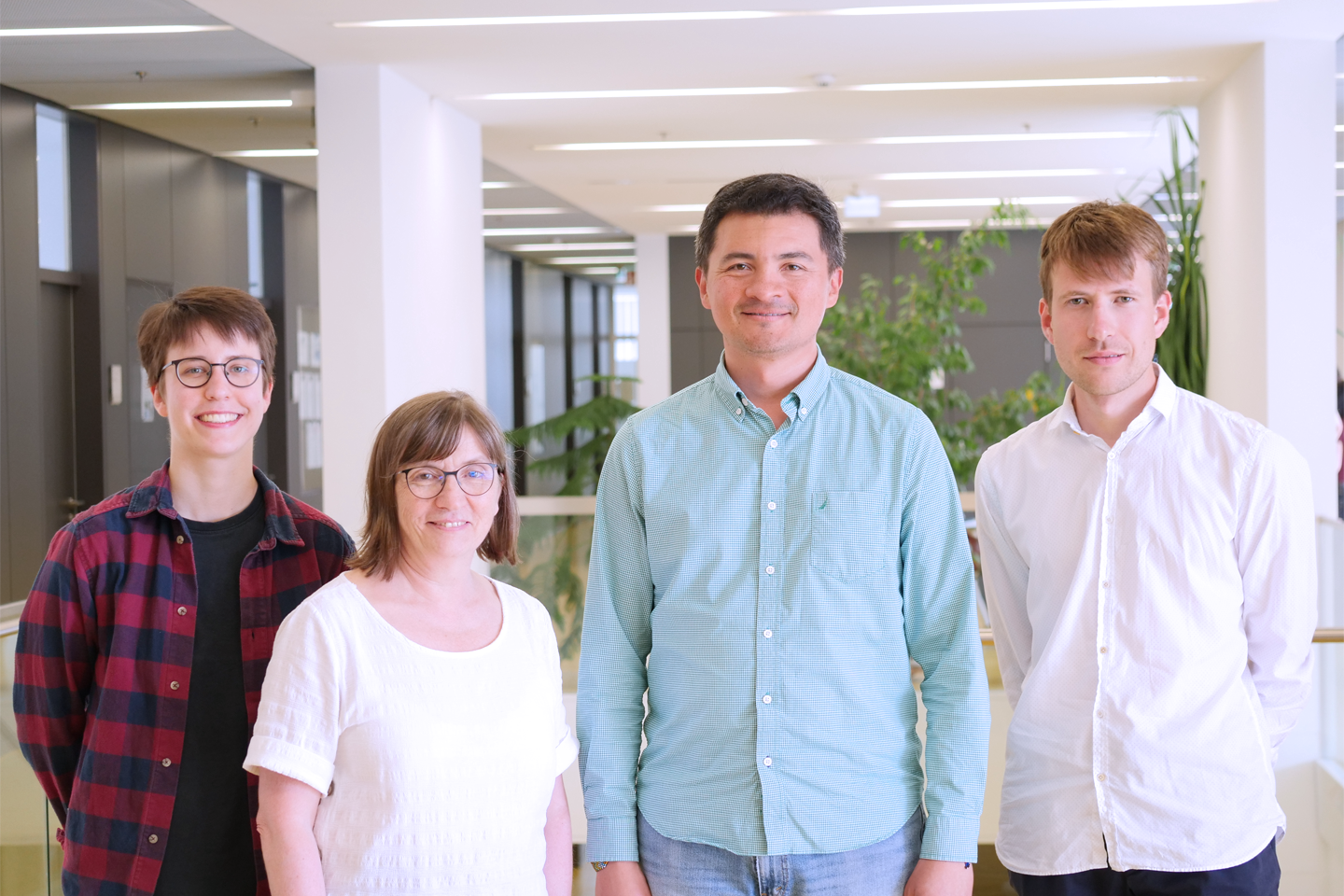Joan Larrahondo, Ph.D., researched sustainable energy generation from landfills for six months at the Faculty of Engineering at HTWK Leipzig.
As part of a six-month international research stay, Joan Larrahondo, Ph.D., Associate Professor at the Pontificia Universidad Javeriana (Bogotá, Colombia), stayed at the Faculty of Engineering at Leipzig University of Applied Sciences (HTWK Leipzig) from January to the end of June 2025. The Pontificia Universidad Javeriana, a private university founded in 1623 is one of the oldest and most prestigious universities in South America. The University consists of 18 faculties and offers more than 200 degree programmes, including medicine, engineering, architecture, theology, law and social sciences. In addition, the Pontificia Universidad Javeriana has a strong research culture.
Visiting scientist Joan Larrahondo, Ph.D., focuses his research on geotechnical and environmental engineering topics, including mining waste, landfills, gassy soils, pollutant barriers, hydrophobic mineral surfaces and shallow geothermal energy. Larrahondo teaches courses in soil mechanics, geotechnics, environmental geotechnics and engineering geology at his home university. As part of his research into sustainable energy generation from landfill sites, he spent six months at the Faculty of Engineering at HTWK Leipzig.

The composition of landfilled waste is very different in Germany and Colombia, with the proportion of organic components being limited to less than 5 % in Germany since 2005. In Colombia, household waste is not separated, meaning that the waste there can contain up to 70 % organic material. The biochemical decomposition of the organic components produces biogas (including methane) and heat, so that temperatures of 80-90°C are reached in South American landfills. Both the biogas and the heat can be utilised for a regenerative energy supply. Measurement data on the settlement behaviour and temperatures from the Doña Juna landfill in Bogotá enable the investigation on a real scale.
At the same time, it is of great interest to be able to analyse the processes in the landfill subsurface and to predict them using numerical simulation. The research stay of Joan Larrahondo, Ph.D., at the Faculty of Engineering served this purpose. As part of several research projects led by Prof. Anke Bucher on shallow geothermal energy (SAGS, EASyQuart, EASyQuart-Plus), processes such as temperature changes or groundwater flow in the subsurface have been and are being modelled as well as calculated at the faculty using the open source program OpenGeoSys (OGS). OGS is maintained and continuously developed by the Department of Environmental Informatics at the Helmholtz Centre for Environmental Research GmbH (UFZ). During his stay, Joan Larrahondo worked intensively on the use of the programme, its application and further development in relation to the specific issues in Colombia. He received support from the faculty's research assistant Max Jäschke.
Joan Larrahondo's stay at the HTWK Leipzig was financially supported by a DFG grant, which was awarded to establish a research cooperation between the HTWK and the Pontificia Universidad Javeriana. Larrahondo made many other contacts during his stay: These included Prof. Al-Akel, who is a professor at HTWK and a proven expert in landfill research, as well as Prof. Haibing Shao from the UFZ, who has in-depth knowledge of the numerical simulation of porous media. There was also contact with the Research Institute for Geotechnics at the HTWK through Benedict Löwe, as well as other contacts with landfill operators in Germany. During his stay, Joan Larrahondo visited the landfill site in Cröbern and was also on site at a geothermal drilling for borehole heat exchangers in Schkeuditz. In addition, he met with Prof. Thomas Nagel from the Freiberg University of Mining and Technology (TU Bergakademie Freiberg) to get information about the use of OGS in teaching geotechnics.
Following Larrahondo's return to Colombia at the beginning of July 2025, the aim is to explore the possibilities of further collaboration and, for example, to work on a suitable concept for an international research project. Joan Larrahondo's stay was a very valuable experience for Prof. Anke Bucher and her research assistants, providing significant impetus for the application and further development of numerical simulation with OGS. There is great hope that this positive experience will be continued in future joint research collaborations.